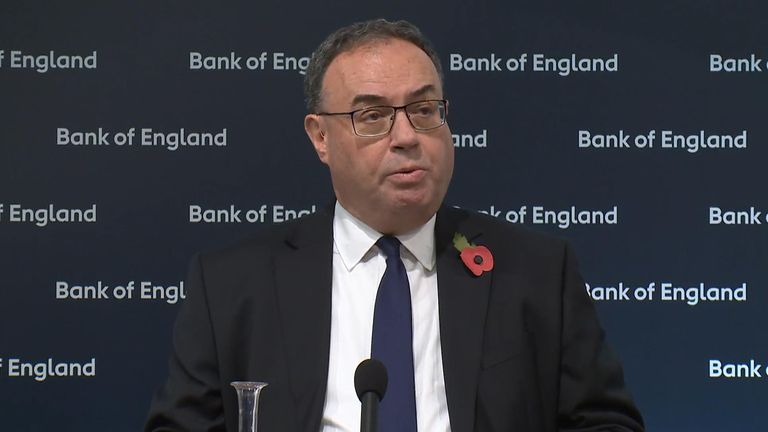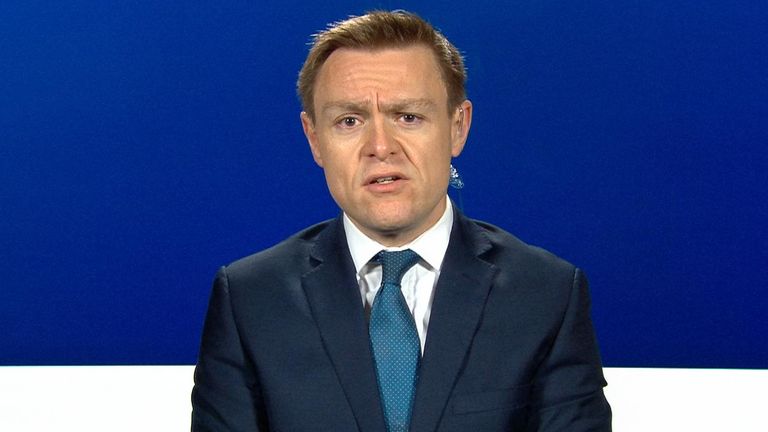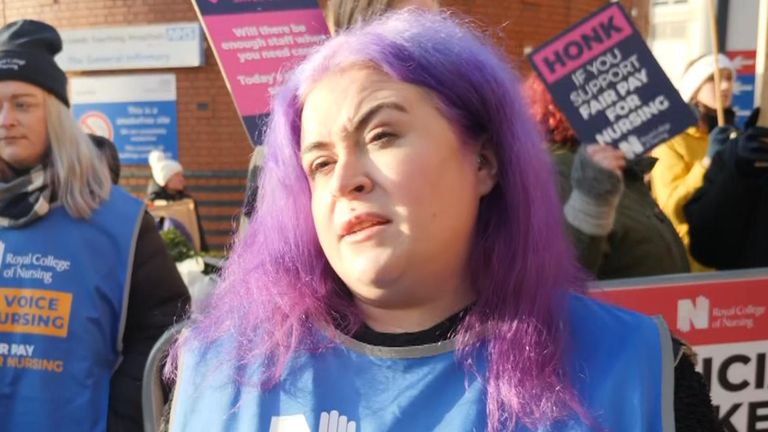Pace of wage increases slows but unemployment rate unchanged | Business News
The pace of wage growth has eased back from a record level, according to official figures that showed a resilient labour market despite the stalling economy.
The Office for National Statistics (ONS) reported that average wages excluding bonuses were 7.7% higher than a year earlier in the three months to September.
That was down from the revised 7.9% level registered last month but meant that wages were still rising by 1% after taking the rate of inflation into account.
The ONS said it was the highest rate for real wage growth for two years though economists declared that the data was a clear sign that wage growth was slowing – raising the chance of an earlier than expected interest rate cut by the Bank of England next year.
The easing in the headline wage figure, while slight, will be welcomed by rate-setters who see high pay growth as an inflationary threat.
That is because improved spending power tends to boost demand, and therefore price growth.
The Bank has twice held off on a further interest rate rise since September due to evidence its 14 consecutive hikes, aimed at taming the pace of price increases, is having the desired effect.
The employment data, though, is complicated by the fact that it currently comes with a big health warning.
The ONS is working hard to bolster participation rates for its Labour Force Survey, which is the backbone of the employment figures.
Falling response volumes have knocked the perceived accuracy of the estimates.
The ONS has responded with a series of measures including the return of in-home interviews and re-contacting households that fail to respond.
The problems mean that for a second successive month, the report is incomplete.
It is a crucial tool for providing an overview of the UK labour market and forms a big part of decision making at the Bank of England when deciding interest rate levels.
The decline in the wage figure was mainly explained by one-off payments to NHS staff, made in June, falling out of the calculations.
At 7.7%, it remains above the rate of inflation though that is widely tipped to fall dramatically when the figures covering the year to October are released on Wednesday.
Economists polled by the Reuters news agency see the consumer prices index (CPI) measure easing to 4.8% from the current level of 6.7%.
Samuel Tombs, chief UK economist at Pantheon Macroeconomics, said: “Much slower wage growth is increasing the chances of a rate cut in H1 (first half) 2024.”
He explained: “Month-to-month growth in average weekly earnings excluding bonuses slowed to 0.24% in September – or 2.9% on an annualised basis – well below the 0.64% average increase in the first eight months of 2023.
“September’s pace is broadly consistent with the 2% inflation target, given trend productivity growth of almost 1%.
“What’s more, the month-to-month change was boosted by sharp increases in pay in the public sector; private-sector wages rose by just 0.13%, or 1.6% on an annualised basis.”
The wider ONS figures showed the UK’s unemployment rate remained static at 4.2% despite the stalling economy – hurt by the Bank’s action to raise borrowing costs.
Darren Morgan, ONS director of economic statistics, said: “Our labour market figures show a largely unchanged picture, with the proportions of people who are employed, unemployed or who are neither working nor looking for a job all little changed on the previous quarter.
“The number of job vacancies fell for the 16th straight month. Nevertheless, vacancies still remain well above their pre-pandemic levels.”
Chancellor of the Exchequer, Jeremy Hunt. responded: “It’s heartening to see inflation falling and real wages growing, keeping more money in people’s pockets.
“Building on the labour market reforms in Spring, the Autumn Statement will set out my plans to get people back into work and deliver growth for the UK.”




